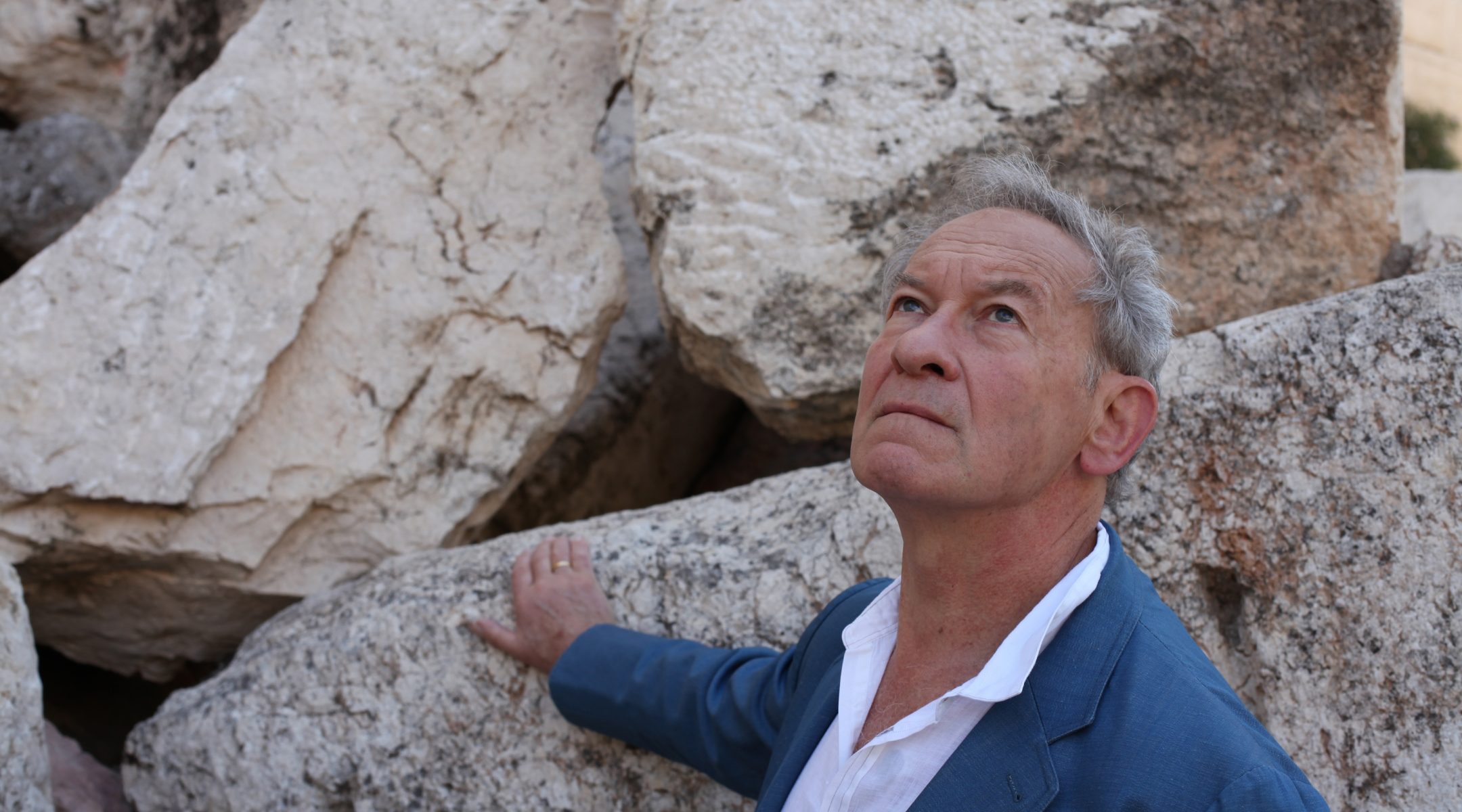BOSTON (JTA) — For decades, Simon Schama has dazzled the public with epic books and popular television documentaries on topics ranging from Rembrandt to the French Revolution.
The famed British-born historian garnered an International Emmy with his 2006 television series “The Power of Art,” while his book “Rough Crossings,” about escaped slaves who joined the British cause during the American Revolution, won the National Book Critics Circle Award.
But not since his earliest writings had Schama, a professor of art history and history at Columbia University in New York, focused on Jewish topics.
With “The Story of the Jews,” the 69-year-old Schama is returning to his Jewish roots in what is perhaps his most personal work. The five-part television series, covering 3,000 years of Jewish history, will be broadcast on PBS beginning March 25. It aired last fall on the BBC to critical and popular acclaim in Britain.
“There are those who think the point of history is almost self-discovery and those who take the opposite view, that it’s about writing about people removed from you in time and place. That’s pretty much where I planted my flag until later in life,” he told JTA in a telephone interview, explaining his previous professional remove from Jewish history.
Schama points to his more recent works on British and American history as instances when he began to tackle subjects closer to his personal experience.
“I realized there was something to be said for proximity that made no pretense of dispassion,” he said.
Schama, who grew up attending London’s Golders Green Synagogue with his parents, says he is no longer as religiously observant. But the TV series showcases his continued affection for Jewish tradition: Schama is shown at his family’s Passover seder; in Jerusalem, he notes that he celebrated his bar mitzvah nearby; and at a London synagogue, he explains how he feels when the Torah is brought out.
“This is the moment when Jews feel most Jewish,” Schama narrates. “The ark opens, the Torah scrolls … are held up and you smile. At least I always smile at the pure beauty of it all.”
Accompanying the five-hour TV series is a lavishly illustrated two-volume companion book with the same title. The first volume, released this week, takes readers from ancient times through the 1492 expulsion of Jews from Spain. The second, which advances the story to the present, is due out in the fall.
Schama says that many years ago, he did make an abortive attempt at writing a history of the Jews.
“I was too close to the subject,” he said. “Maybe there were too many uncles and aunties in the way.”
On his new project, Schama embraced the opportunity offered to him by the BBC to tackle Jewish history using what he calls a marriage between word and image.
“I knew I had to have a go at this before I died,” he said.
In the opening frames of the first episode, “In the Beginning,” Schama tells viewers that from an early age he was drawn to Jewish history, a story of “suffering and resilience, endurance and creativity.”
“It’s the story that made me want to be a historian,” he explains.
In one scene, Schama walks through ruins of a historical site in upper Egypt, using as his guide the Elephantine Papyri, a collection of fifth-century B.C.E. manuscripts that illuminate life in a town of Jewish soldiers and their families, from property disputes to marital squabbles.
“These are not the grandiose patriarchs of the Bible,” he says.
The second episode, “Among Believers,” traces the lives of Jews living under Christian and Islamic rule through the Spanish Expulsion. The third installment, “A Leap of Faith,” explores the Enlightenment in Europe, including a portrait of the 19th-century German-Jewish opera composer Giacomo Meyerbeer, whose popular works drew anti-Semitic attacks from Richard Wagner.
As a documentary maker obsessed with all aspects of the craft, from editing to sound, Schama says he is most proud of the fourth episode, “Over the Rainbow.” In the segment, he travels from the lost world of the shtetls to Tin Pan Alley and Hollywood and back to a Europe on the road toward Nazi destruction.
Schama’s visit to a forest town in Lithuania, where his mother’s family once lived as loggers, is dramatic and poignant. In America, Schama looks at the life of Yip Harburg, who wrote the lyrics to “Brother, Can You Spare a Dime?” and the songs in “The Wizard of Oz.”
The final episode, “Return,” examines the impact of the Holocaust and the creation of the State of Israel.
A self-described “clear two-state Zionist,” Schama does not shy away from tackling the Israeli-Palestinian conflict. He interviews an Israeli living with his family in a West Bank settlement and a Palestinian whose village was destroyed during Israel’s War of Independence.
“It’s important to acknowledge what befell the Palestinians,” he told JTA, but “no one could watch and think I wasn’t a passionate champion of Israel. I am.”
Schama says he is especially interested in reaching non-Jews who are not necessarily well informed about Jewish history.
“The problem, especially outside of the U.S., is that Jewish history is framed by the Holocaust and the [Israeli-Palestinian] conflict. It generates a kind of truculent polemics,” he said.
Schama says his immersion in “The Story of the Jews” has not changed his own sense of Judaism.
“I came to it with a very strong sense of Jewish identity,” he said.






